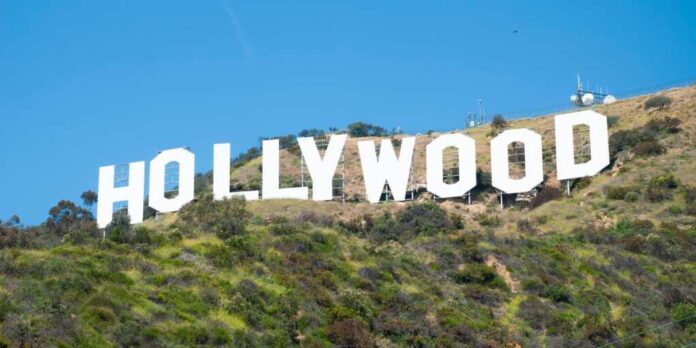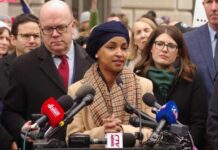
President Donald Trump is turning the spotlight on Hollywood—and foreign film studios won’t like what he just announced.
In a fiery Truth Social post Sunday, Trump blasted the American movie industry for outsourcing productions to other countries and accused foreign governments of using film incentives as a propaganda tool to undermine the U.S.
“The Movie Industry in America is DYING a very fast death,” he wrote. “Other Countries are offering all sorts of incentives to draw our filmmakers and studios away from the United States.”
Trump went even further, calling the issue a matter of national security. “It is, in addition to everything else, messaging and propaganda!” he said. “This is a concerted effort by other Nations, and therefore, a National Security threat.”
To counter the trend, Trump said he has officially directed the Department of Commerce and the U.S. Trade Representative to implement a 100% tariff on all movies produced abroad that are imported into the U.S.
“WE WANT MOVIES MADE IN AMERICA, AGAIN!” he wrote.
The move shocked both the entertainment industry and international trade analysts. While tariffs have long been part of Trump’s economic toolbox—especially against Chinese exports—this marks the first time he’s extended such a policy to the cultural sector, treating foreign-produced entertainment as both an economic drain and a strategic threat.
Trump’s announcement follows a series of escalating trade battles aimed at protecting American industries. The president has imposed new tariffs on Chinese tech and manufacturing, penalized European automakers, and even considered slashing funding for U.S. universities that accept money from adversarial nations. Now, Hollywood is on the chopping block.
The rationale behind the movie tariff appears to follow a broader Trumpian logic: if it’s made overseas, it’s a threat to American jobs, values, or sovereignty. According to Trump and his advisors, international studios lure American filmmakers and actors away with foreign tax credits and subsidies—creating not just job loss, but also films that may not reflect American values.
“This is about economics, yes,” one White House source told Fox News Digital, “but it’s also about culture. We shouldn’t be letting countries like China, Canada, or the U.K. shape what the world sees as ‘American storytelling.’”
The industry reaction has been predictably divided. Independent filmmakers and conservative groups cheered the move, arguing it could finally break the grip of leftist, globalist producers and encourage a return to traditional American values on screen. Hollywood elites, meanwhile, panned the decision as censorship-adjacent and damaging to international collaboration.
“Trump is literally taxing ideas,” one anonymous studio executive fumed to Variety.
But the president’s team says the message is clear: the golden age of outsourcing America’s stories is over. Trump wants to see studios reinvest in domestic production—not just to protect jobs, but to ensure that American films are made in American cities, by Americans.
“You can’t Make America Great Again if every story we tell is being produced in New Zealand, funded by China, and filtered through a globalist lens,” said a senior administration official.
In the same weekend announcement, Trump also reaffirmed he would not soften tariffs on China, despite growing economic strain overseas. “They want to do business very much,” he told NBC. “Their economy is collapsing.”
As the 2025 summer box office heats up, it’s unclear how quickly the new movie tariff will take effect. Legal battles are expected. Trade partners like France, Canada, and the U.K. are reportedly preparing retaliation of their own. But if Trump has his way, the days of outsourcing Hollywood blockbusters could soon be history.
For now, the final credits haven’t rolled—but Trump is already rewriting the script.












